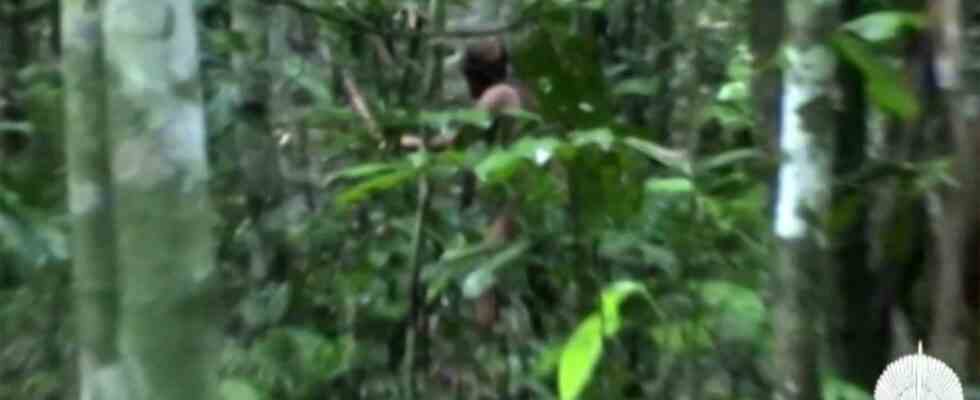The man apparently lived alone in the Brazilian jungle for more than 25 years. He was the latest in a group of indigenous people who had been attacked by ranchers for the past century.
An indigenous man who has been living alone and isolated in the Brazilian Amazon region for more than 25 years has died. This emerged from a statement by the movement for indigenous peoples “Survival International” on Monday evening (local time). According to the Brazilian Indigenous Authority Funai, which observed him, the man was found dead in a hammock during a round of checks without signs of violence.
Known as “Índio Tanaru” or “Índio of the Hole,” the indigenous man who dug deep holes to trap animals and hide was believed to be the last survivor of his people and the only resident of the Tanaru indigenous territory in Rondônia state on the border to Bolivia. Human rights activists believe the remaining members were killed by ranchers when they entered the area in the 1970s and 1980s. The region is known as Brazil’s Wild West, where land conflicts are often fought out with weapons. “It symbolized both the appalling violence and cruelty done to tribal peoples in the name of colonization and economic gain, and their resistance,” said Fiona Watson of Survival International, according to the statement.
Human Rights Watch laments the government’s ignorance
According to Human Rights Watch, the rights of the indigenous people in Brazil are being eroded. The handling of the protection authority for the indigenous peoples Funai by the government of right-wing President Jair Bolsonaro shows this, the human rights organization said a few days ago in São Paulo when publishing a report on the subject. The number of employees has been drastically reduced. Instead of experts, henchmen of the government and former military personnel would be hired.
The Funai boss Marcelo Xavier, an ex-policeman appointed by Bolsonaro in 2019, paralyzed the work of the authority. At the same time, violence against indigenous leaders and illegal entry into protected areas are increasing. According to the report, no indigenous protected areas have been designated since Bolsonaro took office in 2018, although this is one of the Funai’s main tasks. The Brazilian constitution guarantees the right of indigenous peoples to the land on which they live. 241 indigenous territories are still pending demarcation, Human Rights Watch said on International Day of Indigenous Peoples. The Funai leadership has halted all processes to identify and demarcate indigenous lands.

